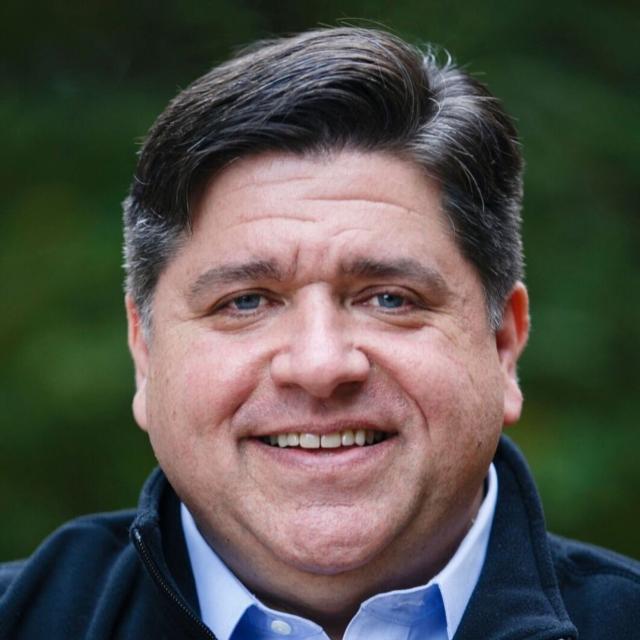
WASHINGTON, D.C. - The United States Supreme Court ruled 5-4 Wednesday against the American Federation of State, County and Municipal Employees (AFSCME) in Illinois in a monumental case, Janus v. AFSCME, which many are saying deals a heavy blow to public-sector unions across the country.
Get The Latest News!
Don't miss our top stories and need-to-know news everyday in your inbox.
The ruling states people covered by public unions' collective bargaining agreements who decline to join the membership of the union itself will not have to pay fees charged by the union for that representation. If the majority of employees in a bargaining unit decide and vote in favor of unionization, that entity is designated as the exclusive representative of all employees – even those who did not join – under Illinois law. This Supreme Court ruling now states those covered under that umbrella will be able to reap the benefits of that collective bargaining without paying into it.
The Gubernatorial Stances
 This decision was praised by Illinois Governor Bruce Rauner, who is an avid Right-to-Work supporter. This ruling essentially spreads Right-to-Work across all public sector unions. In a release, Rauner said the decision “will help combat the conflicts of interest created when government union leaders negotiate with politicians they help elect.”
This decision was praised by Illinois Governor Bruce Rauner, who is an avid Right-to-Work supporter. This ruling essentially spreads Right-to-Work across all public sector unions. In a release, Rauner said the decision “will help combat the conflicts of interest created when government union leaders negotiate with politicians they help elect.”
“For decades, Illinois workers have been forced to pay partial union dues against their will,” he said in that release. “The practice infringed on the constitutional rights of public sector workers who were asked to give up their First Amendment rights as a condition of employment. This decision fairly reinstates those rights.”
In the release, it is stated Rauner issued an executive order to “protect workers' freedom of speech and initiated the lawsuit against AFSCME, arguing compulsory fees for non-union government workers were unconstitutional.” This suit began in 2015, just after Rauner's election, and was taken up by Illinois child support specialist Mark Janus and the Liberty Justice Center, which resulted in Wednesday's ultimate ruling.
Before this ruling, non-union members represented by the union would have to pay as much as 80 percent of all union dues, despite not being within its membership. The release stated this number could be as high as $900 a year in fees.
“This ruling is pro-worker and pro-taxpayer,” Rauner said in the release. “State employees – union and non-union – do tremendous work for the people of Illinois. This ruling is a great victory for our democracy, our public employees, and the taxpayers who count on us to bargain on their behalf.”
Rauner's Democrat opponent for the upcoming gubernatorial election, J.B. Pritzker also issued a statement regarding this ruling. Not surprisingly, it conflicts with Rauner's views on the matter.
 I am appalled by today's Supreme Court ruling on Janus v. AFSCME. While Bruce Rauner relentlessly pursued this special interest agenda, our state was decimated by his manufactured 736-day budget crisis. This is just another example of Rauner partnering with anti-worker special interest groups like the Illinois Policy Institute and the National Right to Work Foundation to pursue his own agenda over the best interests of working families. Illinois needs a governor who understands that unions built our middle class, not one who fights to undermine our workers at every turn. The fight is far from over and when I'm governor, Illinois's working families will have a champion and an ally who will stand with them in the workplace and on the picket line.
I am appalled by today's Supreme Court ruling on Janus v. AFSCME. While Bruce Rauner relentlessly pursued this special interest agenda, our state was decimated by his manufactured 736-day budget crisis. This is just another example of Rauner partnering with anti-worker special interest groups like the Illinois Policy Institute and the National Right to Work Foundation to pursue his own agenda over the best interests of working families. Illinois needs a governor who understands that unions built our middle class, not one who fights to undermine our workers at every turn. The fight is far from over and when I'm governor, Illinois's working families will have a champion and an ally who will stand with them in the workplace and on the picket line.
Pritzker is far from alone in his opposition to Wednesday's Supreme Court ruling.
Special Interest Statements Against the Supreme Court Ruling
Illinois Working Together, which describes itself as “a coalition defending all working families from anti-worker attacks,” has an extremely different stance to Wednesday's ruling than Rauner. In fact, on its website it directly states: “Illinois Working Together believes that Governor Rauner's wrong priorities seek to harm hardworking families and communities throughout Illinois while protecting the most wealthy.”
Its entire mission statement is “to stand up and fight back against the governor's political attacks and threats – and protect the vital services all Illinoisans rely on.”
In a release Wednesday morning, Illinois Working Together Campaign Director Jake Lewis issued the following statement:
Bruce Rauner has made it crystal clear from day one that his top priority as governor is to slash wages, undercut worker protections and gut benefits by attacking the ability of working people to form strong unions.
While Rauner may think today's decision gets him closer to those ends, he and his special interest friends will never stop our movement to protect working families and build a strong middle class in Illinois.
Illinois Federation of Teachers (IFT) President Dan Montgomery issued a similar statement against this monumental ruling:
Though not unexpected, it was incredibly disappointing to see powerful special interests take precedence over the best interests of middle-class Americans at the Supreme Court today.
This case was a direct attack on working people and the causes we fight for every day – protections like healthcare, safe workplaces and small class sizes.
This is personal for all teachers, school staff, college faculty and staff, graduate workers and other hardworking public employees – but even more so here in Illinois, where Governor Bruce Rauner originated this well-funded attack.
Rauner and his powerful friends are focused on eliminating unions because we are one of the last checks on their control and their attempts to rig the economy and democracy further against working people.
And so no court case will divide us or stop our movement. We value our voice. We value our union. And we will keep fighting powerfully for the future we all deserve.
The IFT represents more than 100,000 teachers and paraprofessionals in PreK-12 school districts across Illinois as well as faculty and staff at community colleges and universities.
United Working Families, which describes itself as “a new independent political organization dedicated to giving a political voice to working people and to advancing a progressive policy agenda in Chicago and Illinois,” issued a statement against Wednesday's ruling through its Executive Director Emma Tai, which stated the following:
Bosses around the country – including the billionaire in Springfield and the con man in Washington, D.C. - are celebrating today's Supreme Court's decision. Janus v. AFSCME Council 31 is a craven attack, underwritten by the wealthiest members of our rigged economy, on the ability of workers to fight for good jobs and robust public services.
But the ruling by Trump's Supreme Court should be no surprise. The real question is who will fight back?
In Chicago and Illinois, union jobs in public schools, hospitals and transportation were a pathway to the middle class for women and black and brown families. While Democrats will use today to defend workers, it was Democrats, not Republicans, who decimated those jobs when they privatized schools, sold parking meters and closed public clinics. Both Democrats and Republicans refuse to ask their wealthy donors to pay taxes for the flourishing public services we deserve.
In the aftermath of Janus, the attacks on our jobs, schools and communities will only deepen. Working people need a real political alternative. That's what United Working Families is here for.
Special Interest Statements for the Supreme Court Ruling
The Illinois Policy Institute, which describes itself as “an independent organization generating public policy solutions aimed at promoting personal freedom and prosperity in Illinois,” issued a statement stating “the U.S. Supreme Court ruled today in Janus v. AFSCME that forced union fees are unconstitutional, affirming what many people have known for years: government unions are inherently political.”
In its statement, the Illinois Policy Institute posits 25 percent of AFSCME headquarters' spending went toward political activities and lobbying, while just 21 percent was spent on representational activities over the last decade. These figures were attributed to “new research” and “government union spending research released from the Illinois Policy Institute.”
“Union spending is intensely partisan and often does not reflect the views of the workers who are forced to give these unions a portion of their paycheck,” staff attorney and labor expert at the Illinois Policy Institute, Mailee Smith, said in a release. “In Illinois, government unions have spent decades funneling funds into a political scheme that has propped up Illinois's status quo to the detriment of Illinois taxpayers. Today's ruling is a win for government workers across the country who should never have been forced to compromise their freedom of speech.”
The Illinois Policy Institute also provided highlights from its research in its statement. Those go as follows:
The National Education Association spent more on political activities and lobbying than it did on representational activities twice in the last five years.
Seventy-four percent of Illinois's AFSCME Council 31's political contributions from 2013-2017 were directed toward Democratic communities or organizations.
The five major government unions in Illinois spent a combined $46 million in political campaigns between 2002-2014.
Mark Janus paid about $600 annually in agency fees to his agency's union, AFSCME.
This ruling affects 370,000 Illinois government workers and five million public sector workers in 22 states.
More like this:

